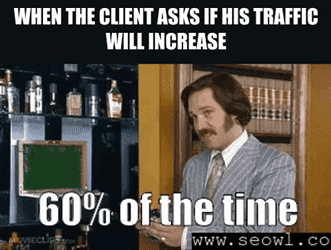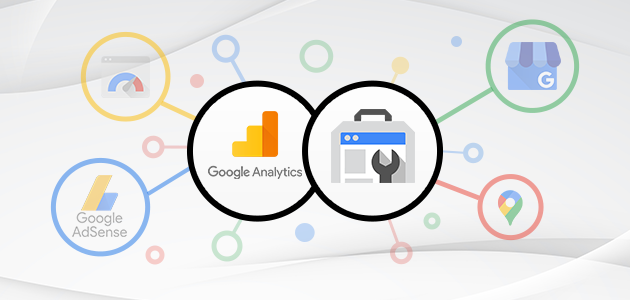How To Choose Keywords for Google Ads

Keywords, keywords, keywords. It seems that every second blog we post is about these pesky little phrases that determine whether your website will get some free traffic or it will be as visited as a non-alcoholic bar in Russia. Well, this time we have something special. Yes, once again, we will talk about keywords, but this time in the context of Google Ad Words.

Finding the right keywords for Google ads will determine whether we will get leads and whether their quality will be good enough so we can return your investment and even get some profit. However, finding the correct keywords is not that simple of a task. But, before we get to the topic of how to choose keywords for Google Ads, we should really find out what are keywords from a PPC stand.
What Are Keywords In Terms Of Google Ads?
Before we continue, let's make one thing clear. Keywords are always the words or phrases people will use to search your product in a search engine. However, keywords are not exactly the same thing as search queries. The keywords are precise words or phrases that the search engine will associate with your website. A search term, better known as queries, is the sequence of words users would write in the search bar to find an item or product they need information for.
For example, a user can search for "How to poison mosquitoes with my girlfriend's deodorant". In this instance, there are many keywords like "poison", "deodorant", "mosquitoes", and "girlfriend". Making your keyword phrase will determine the quality of the lead. If the keyword phrase is "poison girlfriend", you will get some leads, but they will be carrying badges, handcuffs and guns. On the other hand, if you have "poison mosquitoes" as your keyword phrase, you will get visitors, who are much more prone to buy your product.

Of course, you won't use the same keywords in your PPC campaigns as you do in your SEO one. Since the two have are entirely different goals naturally, the keywords you'd want to use are as well. The main difference between the keywords for your SEO campaign and your PPC campaign is their type. For regular SEO optimization, you'd want to go after a long tail or short tail keyword with lower transactional and higher informational intent. On the other hand, for a PPC campaign, you'd need some more specific, branded, locational, and, most importantly, transactional keywords.
Once you know what keyword types to look after, it's time to get just the right one for your PPC campaign.
How To Choose The Right Keywords For Google Ads
The correct keyword or phrase used in your Google ads campaign is sure to make the money flow. Not the best rap verse in modern R n' B music, I'll admit, but still much better than most Kanye West lyrics and much less delusional. The right keywords will bring you the right customers who are not just looking for information on your product but are ready to free themselves from their hard-earned money.
Your first step is to put yourself in your customer's shoes. Hopefully, they are not wearing crocs, so you'd still be able to retain your dignity during this process. Think about how you would search for your product on Google and be frank with yourself. This method will ensure you have a relevant keyword and not just a projection of your wishful thinking. Keep in mind that Google really loves relevance, and if you manage to keep your keywords as close to your product as possible, you will be rewarded by the all-mighty Google. As a result, you will have a 50% better conversion rate than organic traffic, and every dollar you spend will bring you roughly $2 in return. Remember that you are after conversions, not after leads. If you have five leads and all of them end up in a purchase, it's much better than heaving 500 leads with 0 conversions.
To be able to get to this end goal, you'd need to keep your keywords specific. Too general words may bring you a ton of traffic, but it will bring you just a fraction of the purchases a good, specific keyword would. In general, avoid single keywords since they are costly, highly competitive, and attract a lot of people who won't be interested in your product but will cost you a fortune. Better go after a longer, more specific keyphrase, which may have a small volume, but everyone there will be interested in what you are offering. For example, if your keyword is "Pink My Little Pony T-Shirts for man", This will definitely attract the right customers, though they might not be as much as you hope. But if you use only one of these words, the targeted audience might be looking for other t-shirts, ponies, anything little or pink, as well as anything manly. The best solution is to use a mid-long keyword like "pink shirt for". This way, you can maximize your reach and still get the right audience.

To ensure you target just the right people, always use the location and language targeting options. This one is self-explanatory, so I won't waste much time explaining it. You need to be able to send your product (or service) to the place you are advertising. Otherwise, it's utterly pointless.
You need to know how to use the matching options in Google Ads. For example, if you use Google's default setting, you will get a Broad match. This means that if you have "Nettle juice" as a keyword, if someone writes "Nettle stew", they will see your product. However, if you put plus signs in front of your words, people will still reach your landing page easier, but only if they use a close variation of your keywords (like misspellings or plurals).
On the other hand, if you surround your keyphrase with quotation marks, only people who write the exact phrase in a sentence will be able to reach your landing page. For example, if someone writes "How to make a Nettle juice", they will still see your PPC campaign.
Finally, if you want to get an exact match, all you need to do is put your keyword phrase in square brackets -e.g.—[Nettle Juice].
To finish off this improvised lesson on how to make sure you won't get all the traffic in the world, but just the ones ready to make it rain money, we urge you to exclude negative keywords. Simply add a minus sign in front of a keyword, and it won't trigger your ad. This way, you can avoid all sorts of irrelevant visits that will only push your cost higher but won't end up in a purchase.
What Makes A Google Ads Keyword Good?
It's not hard to conclude that some keywords are better than others. But what makes a keyword good or bad? Well, for starters, a good keyword needs to be popular. That means that many people would search for this keyword phrase each month. This is known as the keyword's volume, and it's just as relevant for SEO as it is for any PPC campaign. Unlike SEO, though, this factor is not the utmost priority when searching for your keywords.

As we mentioned in the previous chapter, you'd need your keyword to be highly specific. If you have different target groups, it would be a good idea to create separate ads for all of them and target them with a specific long-tail keyword. It's one of the best ways to target all your customers and tell them what they want to hear. Just remember to have these keywords somewhere on your landing page and be sure to follow all Google's policies. Google really doesn't like when you show your frivolous side and contradict its guidelines, so it's best to avoid its wrath.
Google Trends As A Way To Find Google Ads Keywords
So, now that you know the impossible standards Google puts on your shoulder to make your PPC campaign a winner, it's time to find out how to address the search engine king's whims. Google may be harsh, but it's not cruel. There are several free tools that the tech giant has developed, so digital marketers can find keywords easier.
Google Trends (GT) by far is the most popular among them. GT is a data exploration tool that offers an insight into the audience's behavior on Google. With more than 8.5 billion searches every day, Google has one inspiring data library. Of course, if you want to scrape all of it, you will have to invest in storage the size of Iceland to collect all that data and more importantly, you will need probably centuries to sort through all of it. So what GT does is to group the information about searches based on the general topic and the keywords used. Unfortunately, this data is once again way too large to show it instantly, so GT picks a random sample and delivers them immediately when asked.

The downside is that even Google notes GT's results are not entirely accurate, but they are the best any marketer could hope for.
Existing Search Terms And Queries As Google Ads Keyword Inspiration
Without a doubt, one of the best places to search for keywords is your own website. Yes, if people have gone to your website, it's not just because you are gorgeous, but because there is some value to your content. Now it's time to find what they found valuable and make some additional profit from it.
Thankfully, Google has weaponized you better than the Russian state has its soldiers in Ukraine, and unlike them, you have a pretty good chance of winning this battle. With Google Analytics and Google Search Console, you have the heavy artillery on your side. First, check the acquisition report of Google Analytics to see which search terms lead to your website. Then check out your Google Search Console and see through which queries you are visible and your position for those keywords in the search results. You can also scrape your website, or better yet, your landing page, for keywords with the Keywords Planner. It allows you to post a link, and it will show you suggestions on what keywords you can use. It's a great tool to check if your content is relevant to the keywords you are targeting.

If that's not your style, though, you can always ask the people themselves what they want.
Ask, And They Shall Answer.
In the age of the Internet, it's really not rocket science to ask your audience what they want to see, read or hear. Moreover, people are often inclined to tell you, since everyone prefers personalized content rather than just some boring topic, they will consider a bigger waste of time than trying to teach a fish to ride a bike.
If you don't have an audience yet, you can always ask the public. On websites like Answer The Public, Quora, Yahoo! Answers, Askville, you can see what people are interested in and what are their main queries regarding topics relevant to your product or business. For example, if you sell bikes, you wouldn't care what people's questions about plane tickets are. So all you need to do is write the keyword "bike" in the search bar of any of these websites, and you will get a ton of ideas for all types of keywords. More importantly, you will see the trends and people's general interests. But since this is not a UX blog post, we won't continue with the endless possibilities these websites bring.

Google is also preparing their own version of that tool. It will be called Question Hub. This tool promises to be a goldmine for digital marketers and everyone interested in finding keywords for their PPC campaigns.
Other Free And Paid Tools To Find Outstanding Keywords
Google is not the only one scraping the Internet to find you the best keywords in town. There are countlessly available paid and free tools that can help you brainstorm keywords and give you relevant information on their significance.
One of the best keyword planning tools is Keyword Finder, which offers you a free platform to scrape Google's database for a specific country. Just write up to five keywords in the search bar and start with a shallow search. This will bring you up to 1400 keyword ideas in about a minute. To see the volume, CPC, competition and other statistics about these words, though, you will need Keywords Everywhere. This is one of the best tools one could own, and it costs just ten bucks to check 10,000 words. As a plus, whatever you write in the Google search bar (or YouTube), Keywords Everywhere will show you the volume, the CPC and the competition level, as well as some related keywords with better stats. It's truly a Godsend tool everyone should have in their arsenal.

It's also a good idea to use SEMrush, Ubersuggest, and Keyword Tool to gather as much information as possible.
When All Else Fails, Spy On Your Competitors
Well, let's be honest, your competitors are way ahead of you if you are just getting to know how to find Google Ads keywords. Probably it's not a bad idea to have a look at what they are using. One of the best things about the Internet is that espionage is somewhat legal. It's not that complicated either. You can simply put a competitor's page in the Google Ads keyword planner, and it will show you which words they are most probably ranking. If you need more information, you can even use a spy tool like Majestic, Social Mention, Fanpage Karma and iSpionage.

Majestic is excellent in finding your competitor's backlinks. Just plug their URL in the search bar, and you will get some pretty detailed data about their backlinks and even more statistics if you pay Majestic. Hey, spying is a pricey business.
All the tools give their unique feedback about your competitors, which you can use to create a better PPC campaign than theirs and take their customers as fast as a fuel pump gets your cash these days.
How To Find Keywords When You Have No Digital Marketing Background
Finding the right keywords for your PPC campaign is truly the soul of it. You have only two options if you want to succeed - learn how to do it yourself or hire someone who has the know-how to do it for you. By choosing the former, you will need to invest a tremendous amount of time in learning the ins and outs of digital marketing, SEO and how to use a whole bunch of tools.

Alternatively, you can allocate a small chunk of your marketing budget and hire Locus Digital to do it for you. As one of the top Dallas-based SEO agencies, Locus Digital has the know-how and the experience to build your PPC campaign from scratch and leave you with the conversions and the 5-star reviews from your customers.
If you want to choose the easy way, we won't blame you. In fact, we will congratulate you on your wise decision to spare yourself from some sleepless nights and work weekends just to save a few bucks. Give us a call for a free consultation {Add a CTA link}, and leave the rest to us.


